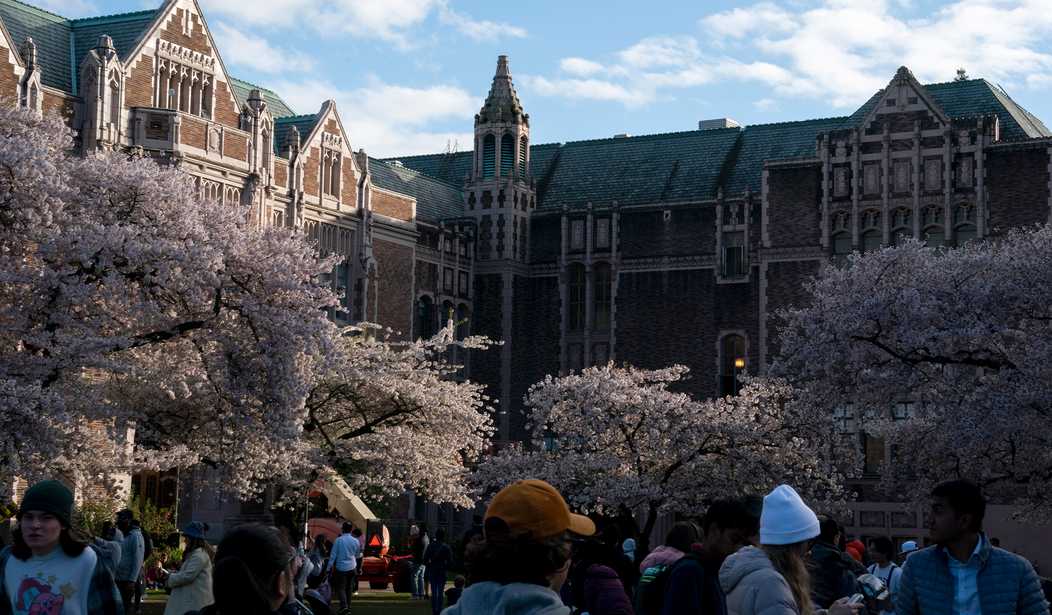Colleges went mad.
They charge students big bucks and then make them feel guilty.
My new video looks at a new documentary called "The Coddling of the American Mind." It persuasively suggests that today, young people are anxious and depressed because "adults" at their schools brainwashed them.
Students like Lucy Kross Wallace at Stanford.
"I was anxious," she says. "I felt guilty constantly. I couldn't stop thinking about the white privilege thing."
Kimi Katiti attended The Art Institute of California and now says, "I feel like I lost my life for six years. I was full of self-confidence when I was 18. But in college, that disintegrated."
Kimi, who is Black, was taught that she is a victim of "microaggressions" from white people who say things like, "You're so articulate," or, "Can I touch your hair?"
"I began to see myself through the lens of Black and a woman," says Kimi. "If I see someone with their dog, for example, and the dog's barking, I could interpret that as a racist microaggression."
This new perspective began shaping every part of her life.
"To compete and get the best grades," she says, "I showed how much of a victim I was in order to impress my professors."
She didn't think that was right, but she didn't push back.
"I thought, I'm paying a lot, so (they must be) teaching me golden rules for life."
She learned that it was important to censor speech by conservatives. Kimi joined a Twitter mob demanding that Twitter block Ben Shapiro's posts.
"I would sit down, all the way through the night" looking for tweets to report. When Twitter didn't block Shapiro, she'd "try again, try again."
Recommended
At Stanford, Lucy was taught that Shapiro's ideas put "Black, brown, trans, queer and Muslim students at risk."
"My first thought was like, 'This is extreme, ridiculous,'" but then she thought, "'You're privileged, you're white.'"
A good person, she was taught, "didn't read too many books by white authors or listen to the 'wrong' kind of music. I was really torn on rap because I didn't know if that was appropriation or appreciation."
To be accepted, she changed the way she spoke.
"When I started to use the vocabulary ... 'marginalized, intersectional, hegemonic, blah, blah, blah,' people just smiled a little bit more, and I started feeling like I was part of an in-group."
A few years later, she decided she had made a mistake.
"This set of thought processes was unhealthy and making me miserable."
Greg Lukianoff, co-author of the book "The Coddling of the American Mind," says "Administrators teach students ... that they can be permanently harmed by words. This is not a kind or compassionate thing to teach."
The new censorship was supposed to help minorities, but minorities, too, are often punished.
In the documentary, Saeed Malami, a Nigerian student, talks about making a speech at a protest.
"I go up there, feeling all cool with myself. I was like, 'Blackness is not a skin color. It's an attitude to life. If you're white, you can be Black. If you're Black, you can be purple or whatever ... ' What happened after that? A lot of people I thought I was tight with just stopped talking to me."
So instead of saying, "I'm no victim," Malami just shut up.
"What I thought to be true," he says, "I will keep in my head, and say something else."
This self-censorship not only stifles useful debate; it makes students unhappy.
Lucy says, "When I was a social justice advocate, I was tired, miserable, pessimistic."
"Now that I'm out of that and I'm thinking for myself," says Kimi, "I'm much happier. I'm at peace."
"The Coddling of the American Mind" is a good introduction to how some of today's schools harm students. You can find out how to watch the full documentary on coddlingmovie.com.
Every Tuesday at JohnStossel.com, Stossel posts a new video about the battle between government and freedom.

























Join the conversation as a VIP Member